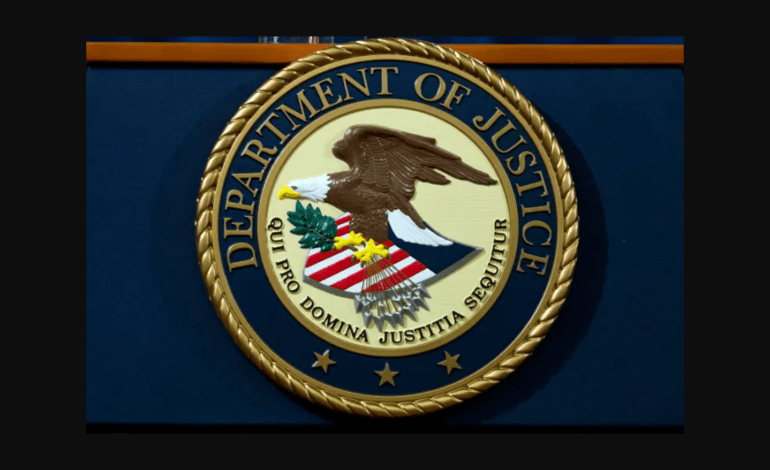
New Justice Department directive on denaturalization sparks backlash
By: IndoUS Tribune Staff
A newly issued Department of Justice (DOJ) directive is drawing sharp scrutiny from legal experts, immigrant rights groups, and political leaders after formalizing a sweeping approach to denaturalization—revoking U.S. citizenship obtained through alleged fraud or misrepresentation. Originally issued on June 11, 2025, the internal memo instructs federal attorneys to prioritize civil proceedings over criminal prosecution, marking a significant procedural shift that now appears to be escalating into a full-blown legal and political controversy.
Civil Denaturalization: Lower Burden, Higher Stakes
Unlike criminal trials, civil denaturalization does not guarantee a defendant the right to government-appointed legal counsel, and the burden of proof is significantly lower. Legal observers warn this procedural change could fast-track the removal of citizenship in ways that raise profound constitutional concerns.
The DOJ outlined ten specific categories of individuals targeted under the policy, including those involved in war crimes, extrajudicial killings, organized crime, and serious fraud. However, critics argue the memo’s language is too vague, granting federal prosecutors sweeping discretion to revoke citizenship based on “sufficiently important” criteria—even for minor or decades-old infractions.
Legal Community and Civil Rights Advocates Push Back
The National Association of Criminal Defense Lawyers (NACDL) released a rare public statement condemning the memo, describing it as a “deeply disturbing effort to diminish the due process rights of naturalized citizens.” Similarly, the ACLU, Immigrant Legal Resource Center, and several academic law clinics are reportedly preparing lawsuits to challenge the policy on constitutional grounds, particularly the Fifth Amendment’s guarantee of equal protection under the law.
“By shifting to civil proceedings, the government can sidestep the fundamental protections guaranteed in criminal court,” said Emily Patel, an immigration law professor at Georgetown University. “This raises the specter of a two-tiered citizenship system—where naturalized citizens can have their status stripped more easily than those born here.”
Political Fallout: Denaturalization as a Weapon?
The directive has also triggered immediate political fallout. On July 7, Rep. Andrew Ogles (R-TN) formally requested that Attorney General Pam Bondi investigate Zohran Mamdani, a naturalized U.S. citizen and New York City mayoral candidate, for potential denaturalization. Although no formal action has been taken, civil rights groups accused Rep. Ogles of weaponizing immigration policy for political intimidation.
President Donald Trump, who has returned to a campaign-style tour across key states, also weighed in, suggesting in an offhand remark that billionaire Elon Musk—a South African-born naturalized citizen—should be investigated for “possible misrepresentations.” Though critics called the remark baseless, it raised fears of politicized enforcement of the directive.
New Case Illustrates Enforcement
The DOJ recently cited the case of Elliott Duke, a UK-born U.S. military veteran, whose citizenship was revoked by a federal judge on June 13. Duke had been convicted of distributing child sexual abuse material—crimes he allegedly failed to disclose during his naturalization process. The case was fast-tracked under the new directive, further fueling debate about what types of offenses justify revocation and how far back prosecutors may look.
Civil Rights Division in Flux
This denaturalization policy arrives amid broader changes within the DOJ’s Civil Rights Division. Multiple resignations have been reported, and the division is now leading investigations not only into voting rights and policing but also into university diversity, equity, and inclusion (DEI) policies. Notably, the University of Virginia president resigned last week following a DOJ probe into the institution’s DEI programs—an investigation some critics say was politically motivated.
Courts Begin to Push Back
Adding a new twist, a federal judge in New Hampshire issued a nationwide injunction on July 10, blocking President Trump’s recent executive order aimed at restricting birthright citizenship for children born to undocumented immigrants. While separate from the denaturalization issue, the ruling was seen by many as a signal that the federal judiciary may begin scrutinizing DOJ’s broader citizenship-related agenda.
What Comes Next
Legal experts expect the first constitutional challenge to the DOJ’s memo to be filed within weeks. In parallel, members of Congress from both parties are considering hearings, with staffers from the House Judiciary Committee already requesting documentation on how cases will be prioritized and reviewed. Meanwhile, immigrant advocacy groups are preparing community guidance and know-your-rights materials for naturalized citizens who may fear being targeted.
Conclusion
The DOJ’s denaturalization directive represents a fundamental shift in how the U.S. government views the permanence and security of naturalized citizenship. While DOJ officials argue the new policy helps protect national security and upholds the integrity of the immigration system, critics warn it risks undermining constitutional protections and introducing a dangerous precedent that could affect millions of Americans.
As the legal and political consequences continue to unfold, this issue is poised to become a defining test of how far the United States is willing to go in redefining citizenship—and who ultimately gets to belong.